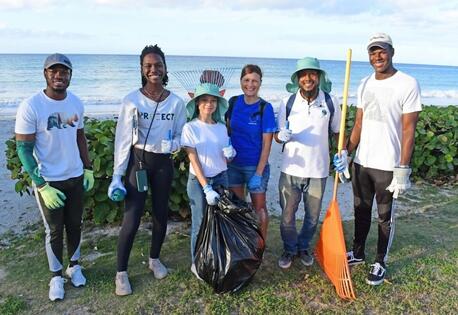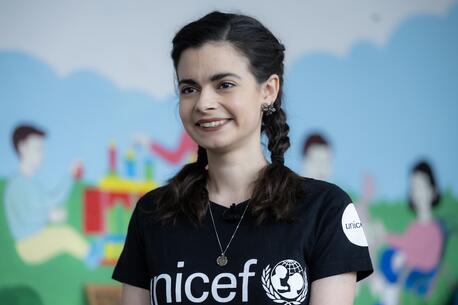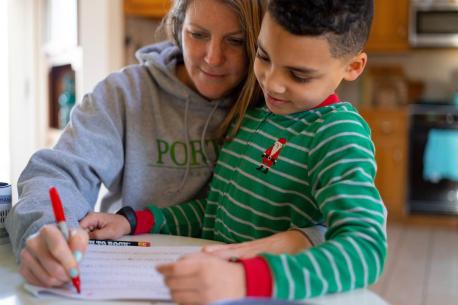
The Doctor Is In: Parents’ Questions About Coronavirus Answered
Dr. Ronald Kleinman, Chief of the Department of Pediatrics at Massachusetts General Hospital, on everything from the COVID-related inflammatory syndrome affecting children to the importance of virtual playdates.
Parents have had a lot on their plates since the new coronavirus was declared a pandemic. Continuing to work — or looking for work if they've lost their jobs — while home-schooling their kids, keeping everyone healthy and safe and providing virtual care for older loved ones while quelling their own fears requires tremendous inner resources.
The one consolation: Children have been mainly less affected by COVID-19, and if they've gotten sick, their symptoms have tended to be mild. But recent news that children in Europe, Britain and the U.S. have been coming down with a Kawasaki-like inflammatory disease that could cause organ failure has sparked new fears. As of May 12, children in 15 states have contracted the frightening illness, Pediatric Multisystem (organ) Inflammatory Syndrome (PMIS). While it's still extremely rare, the syndrome seems to be connected to COVID-19.
“Since the pandemic began, about 40 percent of the children who’ve developed PMIS show evidence of COVID-19 infection," says Dr. Ronald Kleinman, Physician-in-Chief, Massachusetts General Hospital for Children. "PMIS has occurred in young adults, too, although they are more likely to present with COVID symptoms and then progress to PMIS."
So how concerned should parents be? The condition is treatable, but Dr. Kleinman suggests parents remain watchful and stay the course that has kept them and their children safe so far: “Follow the guidelines around physical distancing, wash our hands and keep them away from our faces and pay attention to the guidance of state agencies.”
Below, Dr. Kleinman addresses our additional questions about children and COVID-19.
We’ve heard the symptoms of coronavirus can mimic those of a common cold. How do I know that my child doesn’t have it if he or she comes down with the sniffles?
DR. RONALD KLEINMAN: Coronavirus symptoms in most children seem to be significantly milder, and if the course is typical, it will pass. Sometimes, children don’t have any symptoms and the virus doesn’t cause them to get sick. So, if your child hasn’t been exposed to someone with coronavirus and he or she is otherwise healthy, then take the same steps you would for any cold. Give your child fluids, and acetaminophen for a low-grade temperature, and keep an eye on them. But we know that some children do get the new coronavirus and may, unlike adults, develop gastrointestinal symptoms early in the illness, including tummy aches, diarrhea, a bad taste in the mouth or an inability to taste food. If your child's symptoms intensify — your child's breathing becomes labored, the fever goes up, or your child complains of muscle aches — it's time to see a doctor.
So, again, it’s important to remember that, for the most part, children have a milder illness. And, just as it is with adults, those children most at risk for having a serious case are those whose immune systems are compromised either because they are on medicines to suppress their immune systems or they’ve got an underlying lung disease, such as cystic fibrosis.
The new inflammatory syndrome affecting children, has many people wondering, "Does COVID-19 cause Kawasaki disease?" Is the new condition related to Kawasaki, and what should I be looking out for to keep my child safe?
DR. RONALD KLEINMAN: At this time, there is an association between COVID-19 and the Kawaski Disease–like syndrome called Pediatric Multisystem (organ) Inflammatory Syndrome (PMIS). Features common to PMIS and Kawasaki Disease include inflammation of the small and medium-size arteries, including the coronary arteries that feed the heart and the heart muscle itself. The blood vessels that feed other organs, like the liver and kidneys, may also become inflamed and swollen, keeping them from delivering blood effectively to these organs.
If the heart is failing and blood isn’t flowing well to other organs, the patient can develop multiorgan failure.
Children who have PMIS and Kawasaki Disease are treated with anti-inflammatory medicines, including intravenous gamma globulin. In general, the outlook for both is good, although there have been deaths. Parents should look be on the lookout for coughing; rash; red or pink eyes; a sore mouth; swollen and or red lips, tongue, hands and feet; gastrointestinal problems, abdominal pain, vomiting and prolonged fever. If a child's temperature is over 101.3 for more than 2 to 3 days, take him or her to the doctor.
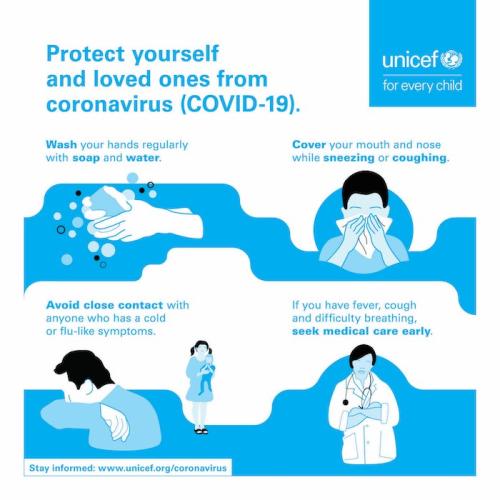
A study published in the online journal Pediatrics made headlines with the warning that children can become seriously ill from coronavirus. Did it reveal anything we didn’t know before about COVID-19’s dangers for children?
DR. RONALD KLEINMAN: We’ve expected all along that some children will be seriously affected, and there have been deaths. But those who have become seriously ill, for the most part, are children with an underlying illness that made them more vulnerable to this disease, which explains why they became seriously ill.
We expect there will be a whole spectrum of illness in children and we’re learning as we go from the countries that have more experience with the COVID-19 pandemic than we have. I mentioned some of the symptoms children may have that occur less often in adults, but all the information so far tells us that the spectrum of illness in children is very heavily weighted toward mild or no symptoms at all.
If my child does come down with a cold and is feverish, should I get my child tested?
DR. RONALD KLEINMAN: Take care of him or her just as you would if there were no COVID-19. You can expect those symptoms will very likely go away after a few days. But if they intensify and they turn into more serious flu-like symptoms — in particular, if your child has difficulty breathing — contact your pediatrician. If your child contracts COVID-19, it’s important to keep an eye on them as they begin to feel better and be on the lookout for the early signs of PMIS
If my child has coronavirus, how do I care for her while protecting the rest of my family? Do I need to isolate her?
DR. RONALD KLEINMAN: By the time your child has symptoms, everyone in the family has likely been exposed to COVID-19, so there’s nothing special you need or can do to protect everyone. Remind everyone to practice good respiratory hygiene by sneezing or coughing into an elbow or tissue, continue to wash their hands frequently and resist the urge to touch their face. Clean the surfaces in your home regularly throughout the day.
What if my child gets sick and I live in a multigenerational household with a grandparent or a great uncle or aunt who has an underlying health condition?
DR. RONALD KLEINMAN: Protecting those most likely to become seriously ill is really important. If members of your core family are over the age of 60, and they have the opportunity to stay someplace else, where no one is sick, they should — especially if they have a higher risk for serious illness due to underlying medical conditions in addition to their advanced age.
What are the underlying health conditions that pose the highest risk?
DR. RONALD KLEINMAN: The risk for serious illness rises significantly over the age of 60 and peaks between the ages of 80 and 90. Any underlying lung condition that has already expressed itself as a difficulty to breathe, like COPD, cystic fibrosis or bronchiectasis, is another risk factor. People who are taking immunosuppressants used to treat such autoimmune diseases as rheumatoid arthritis, psoriasis or inflammatory bowel disease and those who have cancer or are undergoing organ transplants — they are also very vulnerable to becoming seriously ill from COVID-19.
Is there a treatment for coronavirus?
DR. RONALD KLEINMAN: There are no specific medicines at this time that have been proven to stop the virus from infecting humans or from causing injury once someone is infected. The supportive care for both children and adults who are infected with COVID-19 is the same. We provide fluids and medication for fever and any other infections that might coexist with COVID-19, like the flu or a strep throat or bacterial pneumonia. For patients with respiratory distress, oxygen — and in extreme cases, a respirator — is used.
We are testing a number of medications here, including remdesivir, an antiviral that held promise as a treatment for Ebola. We, along with multiple centers across the U.S. and internationally, are now enrolling patients in trials of a long list of medications that may be helpful in treating patients with COVID-19. Over the next several months we’ll have a better sense of which medications work and when and how to administer them – either singly or in combination.
How far away are we from having a coronavirus vaccine?
DR. RONALD KLEINMAN: Most of those working on a vaccine feel we’ll have one in the next 12 to 18 months. There is a huge amount of work involved. Coming up with the active component of the vaccine that will protect someone is the first step. Significant progress has already been made in that regard. But then demonstrating its effectiveness, by testing it in animals first, then humans, takes time.
The March 13 issue of the Journal of Clinical Investigation reported on proposed efforts to use plasma (serum) from the blood of survivors for protection and treatment until a vaccine and antiviral medications are available. What is your reaction?
DR. RONALD KLEINMAN: The strategy of passive immunity, which means you take antibodies from someone who’s recovered from the infection to protect another, can be used in individual cases. But it’s not a strategy to protect the entire population. The reason it’s not is that you must take serum from multiple survivors, treat it so that it’s safe to inject into others, and then set up a distribution system for it. It’s much more effective to focus on building active immunity with vaccines.
Parents and kids who miss their friends and family might be tempted to try to find ways to meet up safely. Can families or friends who’ve been observing identical safety protocols meet in person?
DR. RONALD KLEINMAN: We need to wait until we are advised by our state or federal public health authorities that we can all come together again. Until that time, we should all follow the guidelines around what I prefer to call “physical distancing” rather than “social distancing.” Right now, we shouldn’t distance ourselves socially from one another. Instead, we should find ways to connect that don’t require us to be physically present with one another.
We should all follow the guidelines around what I prefer to call 'physical distancing' rather than 'social distancing.' Right now, we shouldn’t distance ourselves socially from one another. Instead, we should find ways to connect that don’t require us to be physically present with one another.
Whose advice around physical distancing should we follow?
DR. RONALD KLEINMAN: If you are listening at the federal level, Dr. Anthony Fauci, leader of the National Institute of Allergy and Infectious Diseases for three and a half decades, has been an excellent leader and spokesperson. On a local level, folks should look to their governors and those leading the public health effort within their states. The Centers for Disease Control (CDC) is an excellent source for overall guidance on the status of the epidemic in the U.S.
Should I take my child out to her scheduled well visit during this time?
DR. RONALD KLEINMAN: Here at Mass General Hospital for Children, we’ve canceled all well-child visits for all kids over the age of 2. We make an exception for children younger than that so we can initiate the immunizations that are given between birth and 2 years of age. Booster shots or the vaccines that come later in childhood can be put off for a month or two.
That doesn’t mean we are not available to see patients. We’ve converted the majority of our appointments here to virtual visits. Still, if a child is ill and needs to be seen, we are fully prepared to see them in person with all of the safeguards we have in place to protect the patients, their families, our care providers and all employees against COVID or other infections. So if a virtual visit is possible wherever you are, definitely take advantage of that. You can do so much in a virtual visit without overwhelming doctors’ offices and putting others at risk. Both phone visits or face-to-face doctor visits via a platform set up by your doctor’s office or hospital work very well in most circumstances. But do not hesitate to come to the Emergency Department or bring your child to see their doctor if an in-person visit is needed to assess or treat your child.
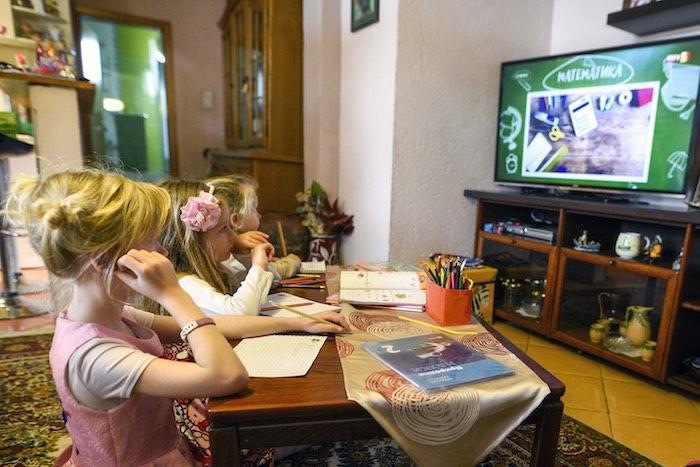
Second-graders Ana and Kaja and their 3-year-old cousin Stela live in North Macedonia, where children have been attending televised classes since March 10, when the government closed schools due to the spread of COVID-19. A daily routine of learning, virtual playdates, family time and children’s innate resilience will help them cope with the disruption and anxiety of the coronavirus crisis. © UNICEF/UNI313776/Georgiev
How are you helping your own children and grandchildren through this difficult time?
DR. RONALD KLEINMAN: On the positive side, we see our grandchildren much more than usual because we FaceTime with them every day. We have two children (and “children-in-law”), all in their early 40s, and each family has two children, ranging from 2 to 11 years of age.
What’s working for them? For the older ones, their school system is set up for remote learning, so they have online classes for two to three hours every day. They do virtual playdates and one of my granddaughters Facetimes regularly with her soccer team. That’s terrific. They get exercise in the backyard, work on projects with their parents, and the older ones have started baking — so they’re learning new skills in the process.
Maintaining structure in a child’s day is really important. Sticking to a routine will support a child’s inherent resilience and help them transition from what they had before to what they will have again once this is over.
Maintaining structure in a child’s day is important. Get them up and dressed and ready for a full day of activities — meals, schoolwork, exercise and physical activity, virtual playdates, snacks — at scheduled times. Sticking to a routine will support a child’s inherent resilience and help them transition from what they had before to what they will have again once this is over.
What advice do you have for families who live in cities, for whom parks and playgrounds are essential to getting exercise and having fun?
DR. RONALD KLEINMAN: I would not take children to the park right now. In such a setting, where children are used to having free rein to run around, it’s very challenging to get them to maintain a physical distance of six feet from others. So, for now, it’s best to avoid parks and places where people congregate.
Of course, avoiding others on city sidewalks can make trips to the grocery store and pharmacy difficult too. My personal advice is that if you and your family need to get outside to run errands or go for a walk, one adult goes out with one child at a time. And stay together. Hold hands with younger children, walk shoulder to shoulder with older kids, and before you go out, make a pact to hang together and walk around other people. Then you should be fine.
The gloom and doom reporting about supply shortages is incredibly alarming. What’s your assessment of the pipeline at this point?
DR. RONALD KLEINMAN: It depends on where you are and on the number of infected sick patients. We are short of supplies in many places, but there’s a huge ramp-up in procurement and production happening right now and if that can continue over the next week or ten days we should be in pretty reasonable shape in most parts of the country.
At Massachusetts General, we are in good shape with respirators and scrubs and gowns. We have experienced shortages of masks, both N95 particulate respirator face masks and regular masks, but we are continuously getting shipments in. Concern about resources is understandable because many places are undersupplied, but those who are responsible for making sure we have enough supplies are working nonstop to bring them in.
What’s also encouraging is that there are all kinds of incredibly inventive things happening now to address the shortages, from 3D printing of masks to offers by manufacturers such as GM and Tesla to devote resources to help solve the nation's shortage of ventilators.
I certainly wish all of our efforts had started four to six weeks ago; that would have been the time to mobilize these resources. Having said that, it's very impressive that these resources are now coming together, and I think that the average citizen should let others worry about that at this moment.
Helping children stay social while maintaining physical distance will make it much easier for them to transition back into physical connection and friendship once this is over — and it will be over.
Can my child have playdates?
DR. RONALD KLEINMAN: Virtual playdates are the only kind that are safe. They are also essential. Staying connected is vital to the social, emotional and physical well-being of children on so many levels. Children are very social creatures, and you want to support their social development and allow them to see that their friends and other children are healthy and functioning during this time. Virtual playdates also enable children to see how everyone can use social media and other online programs to come together.
There are dozens of reasons to keep children socially active during this time. But perhaps one of the most important of all is that helping children stay social while maintaining physical distance will make it much easier for them to transition back into physical connection and friendship once this is over — and it will be over.
Help UNICEF be there for vulnerable children around the world during the coronavirus global health emergency. Your support is urgently needed.
In addition to his duties at Massachusetts General Hospital, Dr. Ronald Kleinman is Physician-in-Chief at MassGeneral Hospital for Children (MGHfC) and Partners Pediatrics, Charles Wilder Professor of Pediatrics at Harvard Medical School and a member of UNICEF USA’s New England Regional Board of Directors.
Top photo: Schools are closed across the U.S., and many people are now operating remotely, challenging kids like second-grader Luka and his mom, Sophia, to create new routines amid the coronavirus pandemic. Here, Sophia takes a break from her work to help Luka with a math assignment at their home in Connecticut. © UNICEF/UNI313395/McIlwaine
